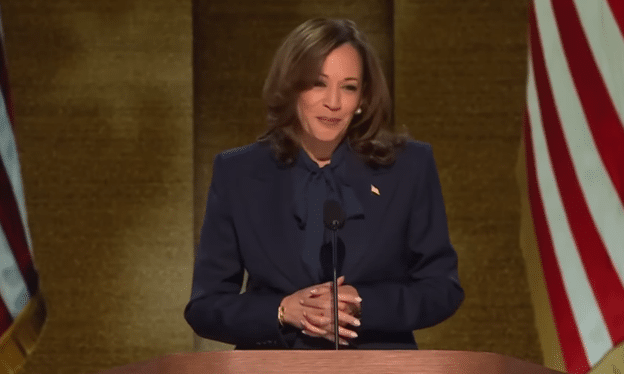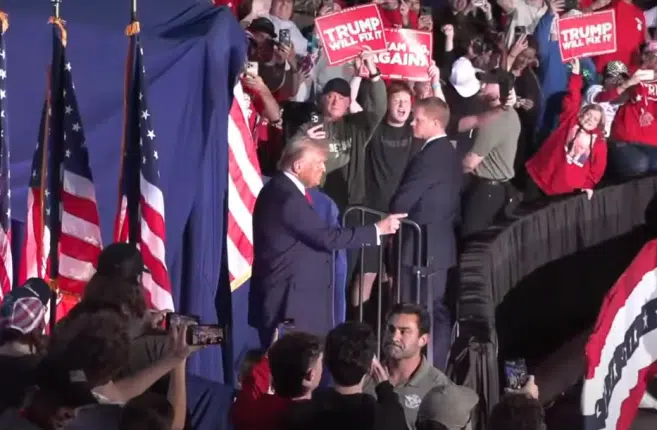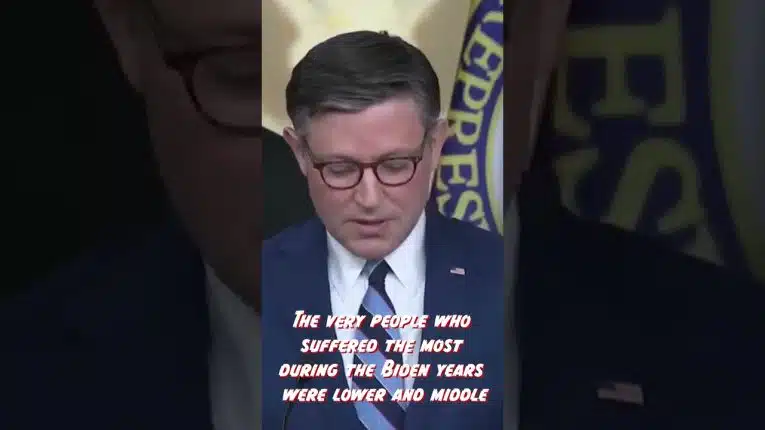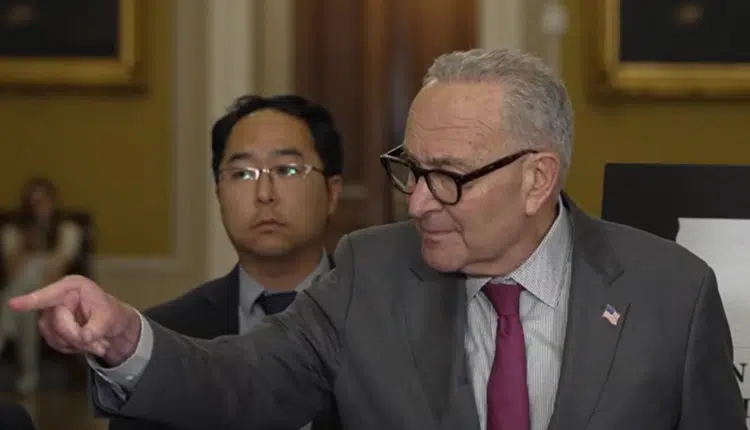
Upon accepting the Democratic Party presidential nomination for 2024 on Aug. 22 in President Joe Biden’s stead, Vice President Kamala Harris delivered a short speech wherein she never mentioned inflation by name even though it is by far the top issue in the campaign alongside the economy among voters, according to recent polls.
She dared not.
In the most recent Economist-YouGov poll taken Aug. 17 to Aug. 20, inflation and prices still remained the top concern among voters, at 26 percent and the economy and jobs at 10 percent. Immigration is at 13 percent, health care at 9 percent, climate change at 8 percent and abortion at 8 percent.
Among those who said inflation and prices were the top issue in the campaign, Trump leads them by almost 35 points, 61.15 percent to 26.5 percent.
Elsewhere, 47 percent of voters say they are worse off financially than they were a year ago. Among those voters, they break for Trump by more than 44 points, 66.8 percent to 22.5 percent.
Whereas, among those who said they were financially the same as a year ago, 37 percent, they favor Harris by 35 points, 60.8 percent to 25.7 percent. Among those who said they were better off, 15 percent, they favor Harris by more than 68 points, 79.7 percent to 11.5 percent.
That largely breaks down along party lines, with 64 percent of Republicans saying they are worse off and 29 percent of Democrats. Among independents, critically, 44 percent say they are worse off, 37 percent say about the same and 11 percent say better off. 8 percent are unsure.
Critically, 23 percent of Harris supporters say they are worse off. That could create an opening for Trump, since he is talking about the inflation and prices issue. Especially, since by every measure, personal incomes have definitely not kept up with consumer inflation even when government transfer payments are included, only increasing 18.2 percent since Feb. 2021 whereas prices are still up 18.9 percent, according to data respectively collected by the Bureau of Economic Analysis and the Bureau of Labor Statistics.
A good question might be what Harris can say to those who say they are the same or better off but still favor Trump, 22 percent and 4 percent, respectively, without disaffecting those of her own supporters who say they are worse off. To get there, she would need to acknowledge the weak economy.
So far, the way Democrats appear to have chosen to solve this dilemma is simply by not addressing it. But that might only go so far if economic anxiety increases as the election gets closer.
Suffice to say, if the election comes down to better off or worse off, clearly more Americans say they are worse off than better off, and could give Trump a slight edge, especially if he can persuade some of those saying they are no better off or are better off, to ask for their support to help those out who are not doing too well by taking measures to reduce costs and increase production.
And then there is all the spending that has taken place since 2021, including $1.9 trillion on the American Rescue Plan for more helicopter money and another $891 billion of green subsidies in the so-called Inflation Reduction Act.
On April 29 at the Economic Opportunity Tour in Atlanta, Ga. Harris stated, unironically, “we are in the process of putting a lot of money in the streets of America…” Trump can ask, does that help inflation?
Trump’s advantage appears to be that he can embrace the economic reality, whereas the polls might suggest Harris might be better off — at least for now — ignoring the plight of Americans suffering through the Biden-Harris economy. For the convention, the betting appeared to be that she can skip past it, banking on enough loyal Democrats and enough independents to get her across the finish line.
It’s a gamble, but Harris won’t think incomes not keeping up with inflation matters until the polls tell her campaign it does, but by then, it might already be too late. Stay tuned.
Robert Romano is the Vice President of Public Policy at Americans for Limited Government Foundation.






